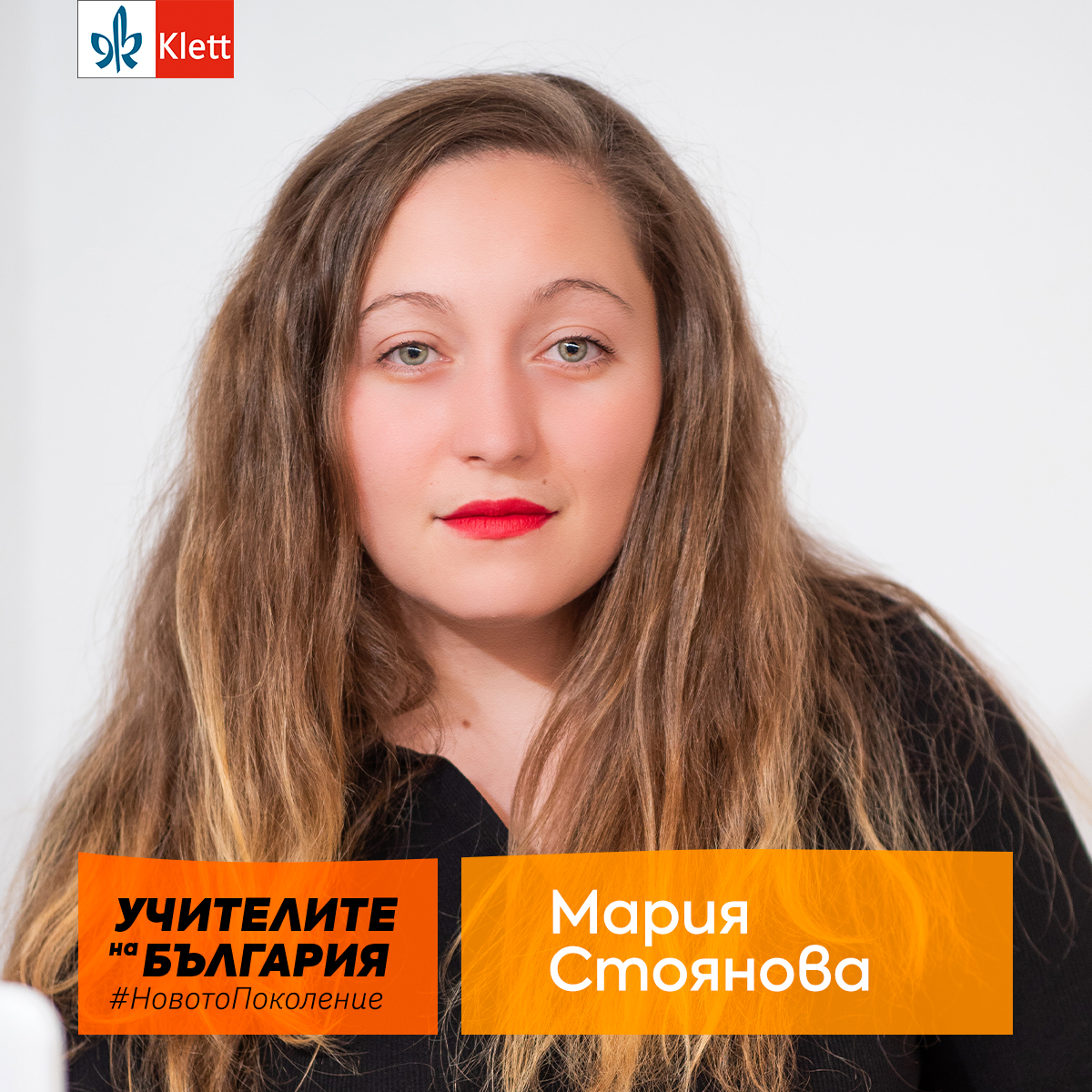Active teaching is a two-way transfer of energy
The young teacher from Blagoevgrad Maria Stoyanova dreams of seeing her students successful and realized in life
Being a teacher is a vocation, not just a job. We introduced you to the faces of ordinary Bulgarian teachers, who, although different, are united by one thing - dedication to the profession. The Bulgarian teacher proved that he is adaptive, innovative and has his own story to tell.
The favorite column "Teachers of Bulgaria" by Klet publishing house, together with 24 Chasa, returns with a new message - #NewGeneration We will meet you with the stories of young Bulgarian teachers, dedicated to the profession and the future of their graduates.
We present you the first story of the new series.

Young, charming. This is the first impression from the meeting with the 27-year-old English teacher Maria Stoyanova from the Language High School “Acad. Lyudmil Stoyanov ”, Blagoevgrad. She looks so young that if you meet her on the street, you will easily mistake her for a schoolgirl. In fact, this has happened to her more than once when she started working at the school 6 years ago. "I do not think I chose what to do. The profession itself chose me ", she admits with the directness of today's young people who are not afraid to look for their place in the world until they find it.
She is a curious student, asserts his opinion, but also actively works on his character since childhood. Until the seventh grade he studied in the small school in the village of Belo Pole, Blagoevgrad municipality. There were only 7 students in the class, all excellent. "The dream of every teacher is to be able to pay so much attention to his students," Maria realized, comparing herself to the large classes of 30 people she enters today as a teacher.
Over the years he has met many young educators, ambitious, inspired, ready to pass on their knowledge, tight and strict in their work. Maria absorbs their enthusiasm and plans to be like them, but not a teacher, but a pediatrician! The need to take care of children and her sense of foreign languages find a crossroads in applied linguistics. Even before graduating from the Southwestern University in Blagoevgrad, fate returned her to "her" high school. Those of the teachers who have known her since her school years greet her with open arms. Maria seems to embody the fruit of their efforts and they are happy to see a successful, accomplished person. And those colleagues who don't know her confuse her with a schoolgirl and even stop her with the question why she doesn't wear a school uniform.

Small in stature, Maria actually merges with the high school students she has been teaching for 6 years. Last year she graduated her first class, with which she has been working since the preparatory 8th grade. The children enter the language school with a competition, they are motivated and do not create problems, she says. Yes, it used to be difficult for her with certain classes. Over time, he develops his approach, learning that he must explain clearly and simply.
She leads the English Speech and Debate Club. The students from the club are permanent national champions and Maria modestly claims that she is only their "administrator", because the children are talented and achieve all the successes on their own. Her student is already a full fellow at New York University, which is a reason for the young teacher's personal pride. Every year the children take part in the Cambridge Schools Association competition with great interest and this year they hope to have competitors in the National Round.
In 2019, Maria won a scholarship from the Fulbright Foundation for media literacy and after 2 months of study in the United States very successfully developed such a club in her high school. Together, teachers and students support various charitable causes, work closely with the American University in Blagoevgrad and in general the list of opportunities for initiative, according to Maria, with the transition to active online communication, increases many times over.
Students and mutual respect
Maria maintains friendly contact with her alumni. "Today's students are quite intuitive about whom to trust, they have an open attitude," she says. Her generation accepted the teacher as someone you should automatically admire from day one in the classroom and listen to. "When you work with students in the 21st century, respect for the teaching profession is earned. We are moving towards a time when teachers will be their mentors, mentors, and not a governing body that controls, "Maria is convinced. After leaving school, young people should be independent and the school should prepare them for just that, she believes.

For the teaching profession
The teacher must be, above all, a person with an open worldview, to be tolerant. Learning is a two-way process - Maria learns from the children as they learn from her. Any knowledge shared is valuable because it is not known which of what is learned today will be applied tomorrow.
The teacher must also be an adventurer who loves children and is open to the new. The ability to enjoy the good little things is nurtured. Today there are cameras, telephones everywhere, every word and action of the teacher is on display. She is saddened by those voices of criticism of teachers working hard in a pandemic. "Colleagues do really valuable things, not formal ones." She herself was scared at first and did not believe that online learning would be so good and effective.
“The teaching profession is for life, when you accept it from the heart. In addition, in order for it to become more attractive for the new generation of educators, the career development of children must be approached early, Maria believes: “Young teachers are closer in worldview to students. Active teaching requires energy. It is a transfer of energy. They are so many, both young and energetic - you are one, you are young and yet you cannot always cope with this energy.
Maria is truly attached to her students - present, past and future. She says she would communicate with them outside of her professional life. Her cause is to see her students as adults, with knowledge that they can apply in the field they like, to be successful in their own way: “Let them develop what they carry in themselves, they have everything. I am proud of the people they become, and I would not replace this communication for anything! ”


